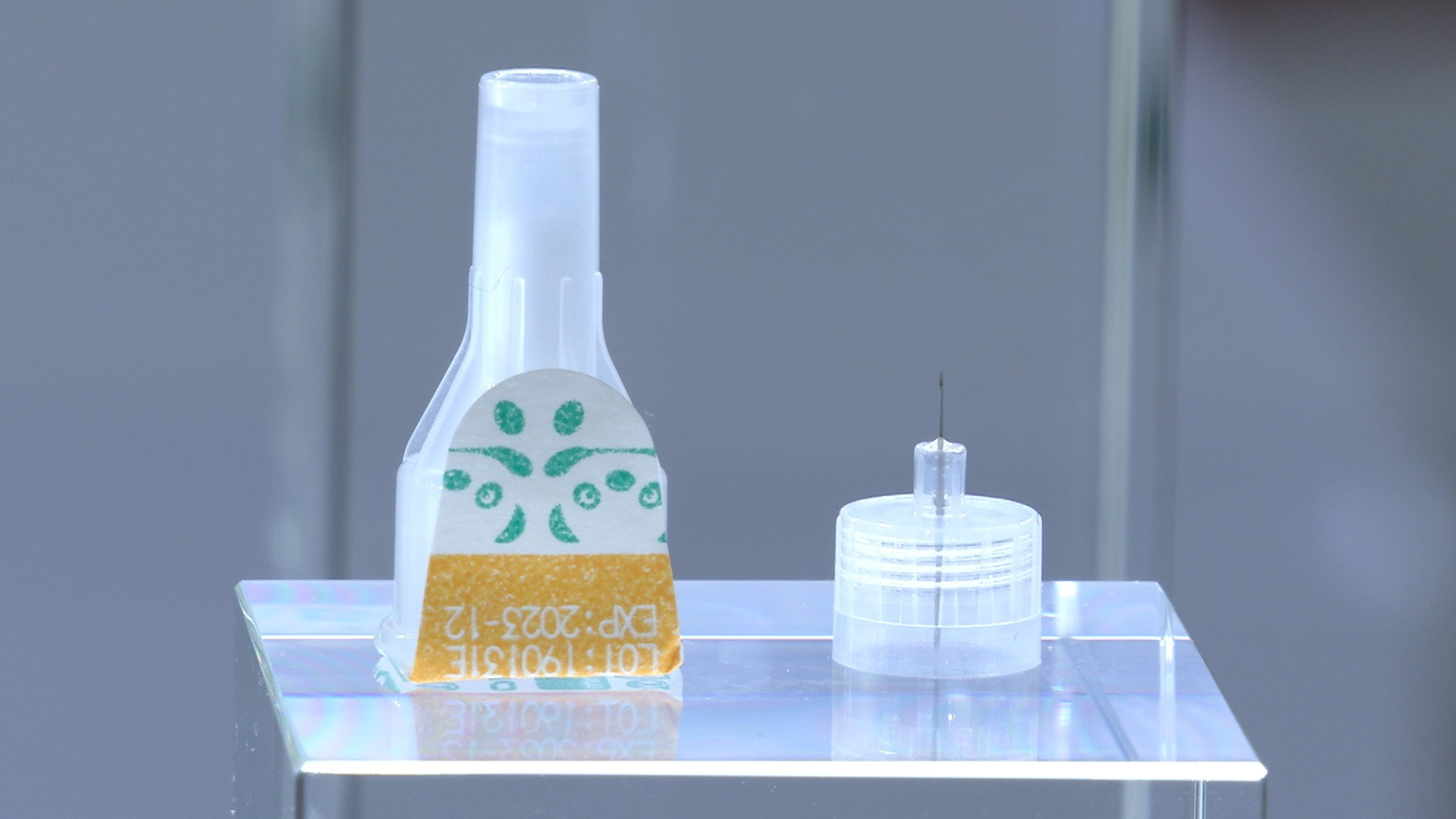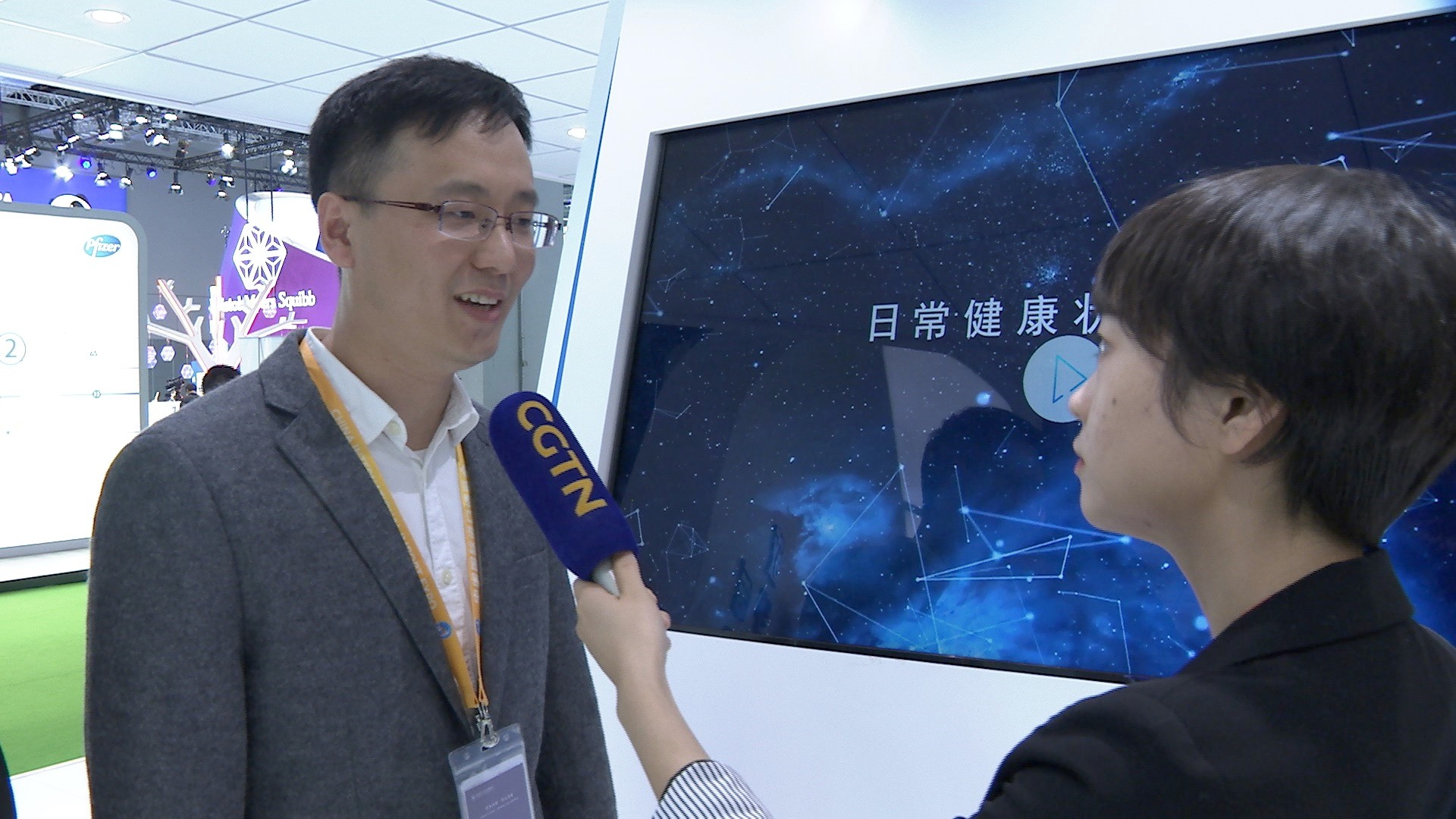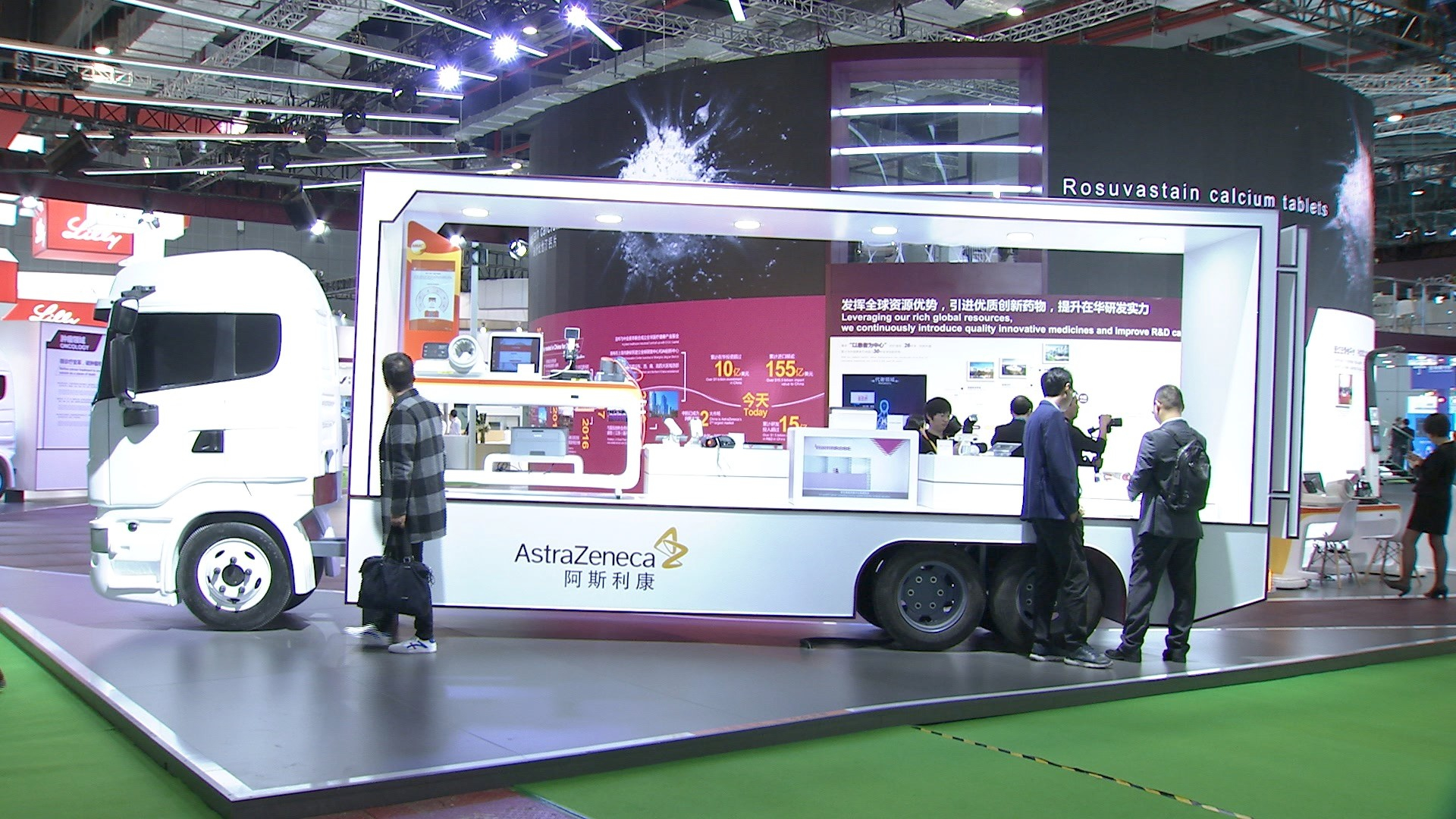02:04

From big MRI machines to tiny insulin injection needles, and from drugs for cancer to disease management software, a tour around CIIE's medical & healthcare pavilion would give you a sense that it is about technology serving real needs.
But there was something else that caught CGTN's attention: "Healthy China 2030" – a policy initiative by the Chinese government to increase the average life expectancy of its people among other goals. It not only appeared repeatedly on introduction leaflets at the booths, but was also frequently brought up by exhibitors.

An expert researcher from Tencent explaining how an AI-powered software they developed with Novartis help manage heart failure. /CGTN Photo
An expert researcher from Tencent explaining how an AI-powered software they developed with Novartis help manage heart failure. /CGTN Photo
"A large part of the healthy China 2030 initiative is about chronic disease," said a representative from Swiss company Novartis, who co-developed a software with tech leader Tencent that was launched during the expo to help manage heart failure. The software, embedded into China's most widely used social media app WeChat as a mini-program, is designed to keep track of patients' medicine intake record and predict the risks of a worsening situation based on certain algorithms.

A mobile checkup station designed by AstraZeneca. /CGTN Photo
A mobile checkup station designed by AstraZeneca. /CGTN Photo
It is not a surprise to see emerging technologies such as artificial intelligence being applied to many of the new equipment and products on display, often touted as more efficient and accurate. There were also many exhibiting companies exploring solutions that can potentially empower China's counties and villages where medical resources are often scarce.
The uneven distribution of medical resources, of course, also means opportunities for companies trying to cash in on China's growing healthcare market. "The Chinese government is actively promoting what is called 'the sinking of technologies', and our equipment can be installed in county-level hospitals where patients can be treated right at where they are and if they want, they can consult doctors in Shanghai, for example, in real time," said Varian, a California-headquartered company specializing in cancer-fighting solutions.
Exhibitors said while the major stakeholders for them are hospitals, research institutes and government agencies, they are also glad to be open to the general public so as to enhance awareness of their brands. Although an immediate deal is less likely to be struck on site, the expo nonetheless provides an important platform.
"We came to first have a look and then keep the conversation going after we go back. But being physically at the expo is important for talking about potential cooperation," said one visitor.